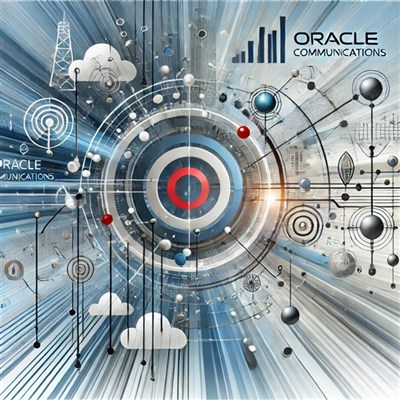.jpgL.jpg)
The digital transformation of human resources (HR) has revolutionized the way organizations manage their most important asset—their people. Human Capital Management (HCM) has become a central focus in this transition, as businesses adopt advanced technologies to streamline HR operations and enhance employee experiences. For HR professionals looking to stay ahead of these changes, obtaining HCM certification is a crucial step. In this blog, we will explore how HCM certification prepares HR professionals for the growing digitization of HR processes and the critical role it plays in transforming HR functions.
What is Human Capital Management (HCM)?
Human Capital Management refers to the comprehensive set of practices, strategies, and tools used by organizations to manage, recruit, train, develop, and retain employees. It focuses on optimizing the workforce to improve overall performance and business outcomes. HCM systems encompass various HR processes, such as payroll, benefits administration, performance management, talent acquisition, and employee engagement.
With the advent of digital transformation, HCM has evolved from being a transactional and administrative function to a strategic initiative. Modern HCM systems leverage cloud computing, artificial intelligence (AI), machine learning (ML), and data analytics to enhance HR operations and provide insights into workforce performance.
The Impact of Digital Transformation on HR
Digital transformation in HR refers to the adoption of advanced technologies to automate, streamline, and improve traditional HR processes. This shift has impacted nearly every aspect of HR, from hiring and onboarding to employee engagement and performance management. The benefits of digital transformation in HR are significant, including:
- Automation of Administrative Tasks: Routine tasks such as payroll, benefits management, and timekeeping can now be automated, freeing up HR professionals to focus on more strategic activities.
- Enhanced Data-Driven Decision Making: Digital HCM systems allow HR teams to collect and analyze data related to employee performance, turnover, and engagement, providing insights that can guide strategic decisions.
- Improved Employee Experience: Digitized HR processes enable personalized employee experiences, from recruitment to ongoing development, enhancing engagement and satisfaction.
- Remote Work Enablement: As remote work becomes more common, cloud-based HCM systems ensure seamless HR management, regardless of location.
- Increased Efficiency and Cost Savings: Automation and digital tools help HR departments operate more efficiently, leading to cost savings and more effective resource allocation.
The Role of HCM Certification in Digital Transformation
As digital transformation accelerates within HR, the demand for professionals who are skilled in using modern HCM technologies is growing rapidly. HCM certification equips HR professionals with the knowledge and skills needed to manage digital HR processes effectively. Here’s how HCM certification plays a pivotal role in preparing HR professionals for the digitization of HR functions:
1. Mastering Cloud-Based HCM Solutions
One of the cornerstones of digital transformation in HR is the shift from on-premise HR systems to cloud-based HCM platforms. Leading HCM certification programs, such as those from Oracle, SAP, and Workday, focus on training professionals to use cloud-based HCM solutions. These platforms allow HR teams to manage employee data in real time, automate workflows, and enhance security and compliance.
An HCM-certified professional will gain hands-on experience with these cloud systems, learning how to configure, customize, and optimize them for organizational needs. This skill is essential for HR departments that want to ensure seamless integration with other enterprise systems and provide a consistent employee experience across multiple locations.
2. Leveraging Data Analytics and AI in HR
Data analytics and AI are revolutionizing how HR professionals make decisions. By analyzing large datasets, HR teams can identify trends in employee performance, satisfaction, and turnover. AI can also automate repetitive tasks like resume screening, candidate matching, and employee scheduling, improving efficiency.
HCM certification programs incorporate data analytics and AI into their curriculum, teaching HR professionals how to interpret workforce data and use AI-powered tools to enhance recruitment, retention, and employee development. With these skills, certified professionals can contribute to more data-driven decision-making within their organizations, improving talent management strategies and overall business performance.
3. Enhancing Employee Engagement Through Digital Tools
Employee engagement is a key factor in organizational success, and digital HR tools play a significant role in improving engagement levels. Certified HCM professionals learn how to utilize engagement platforms and mobile apps that provide employees with on-demand access to their HR information, feedback tools, and performance metrics.
Additionally, HCM certification prepares HR professionals to implement employee self-service portals, online learning platforms, and digital feedback systems that empower employees to take charge of their development. These tools not only boost engagement but also streamline communication between employees and HR teams, enhancing overall workplace satisfaction.
4. Ensuring Compliance in a Digital Environment
With the rise of digital HR systems, ensuring compliance with labor laws, data privacy regulations (such as GDPR), and industry standards has become more complex. HCM certification programs cover critical areas of HR compliance, ensuring that professionals are equipped to handle the regulatory challenges posed by digitalization.
Certified HR professionals learn to manage data securely within cloud systems, track compliance with local and international regulations, and implement best practices for employee data protection. This knowledge is essential in maintaining trust and transparency in a digitally-driven HR environment.
5. Developing Skills for Strategic HR Leadership
As HR departments continue to evolve, the role of HR professionals is becoming more strategic. HCM certification prepares individuals for leadership positions by equipping them with the skills needed to align HR goals with overall business objectives. Certified professionals are trained to take a holistic view of workforce management, using digital tools to enhance not only HR processes but also organizational performance.
Moreover, certified HR leaders are better positioned to drive digital transformation initiatives within their organizations. They can act as change agents, helping to guide their teams through the transition to a fully digital HR function and ensuring that the organization remains competitive in a rapidly changing business landscape.
Why HCM Certification is a Must-Have for Digital HR
The rapid adoption of digital technologies in HR has created a growing demand for professionals who understand how to implement, manage, and optimize these tools. HCM certification provides HR professionals with the technical and strategic knowledge needed to succeed in this new digital landscape.
By becoming certified, HR professionals can:
- Stay Competitive: In a job market that increasingly values digital proficiency, HCM certification gives professionals a competitive edge by demonstrating their expertise in cloud-based HR systems and digital processes.
- Drive Digital Transformation: Certified professionals are better equipped to lead their organizations through digital transformation initiatives, ensuring that HR functions are modern, efficient, and aligned with business goals.
- Enhance Career Opportunities: With the growing emphasis on digital HR, certified professionals are more likely to advance to leadership positions and take on strategic roles within their organizations.
Conclusion
As HR departments continue to embrace digital transformation, the need for skilled professionals who can navigate modern HCM systems and leverage digital tools is greater than ever. HCM certification prepares HR professionals for this digital future, equipping them with the skills, knowledge, and expertise needed to manage cloud-based systems, harness data analytics, and drive strategic HR initiatives.
By pursuing an HCM certification, HR professionals can not only enhance their career prospects but also play a pivotal role in the success of their organizations in today’s digital world.
Koenig Solutions, a leading IT training company, provides comprehensive HCM certification training courses that are designed to equip HR professionals with the necessary skills to drive the digital transformation of HR.







COMMENT